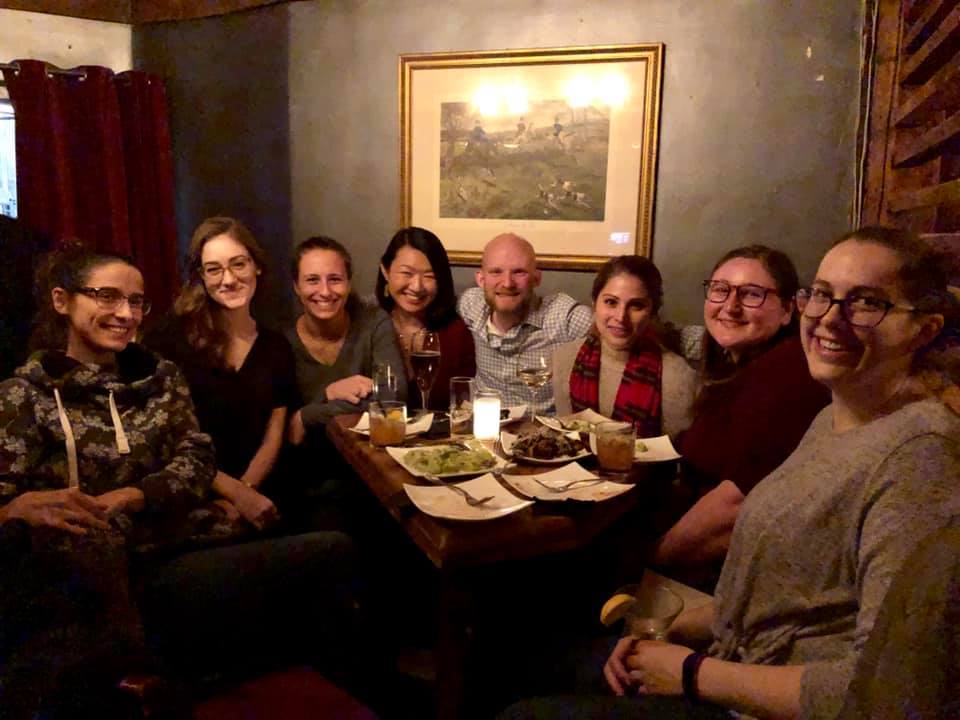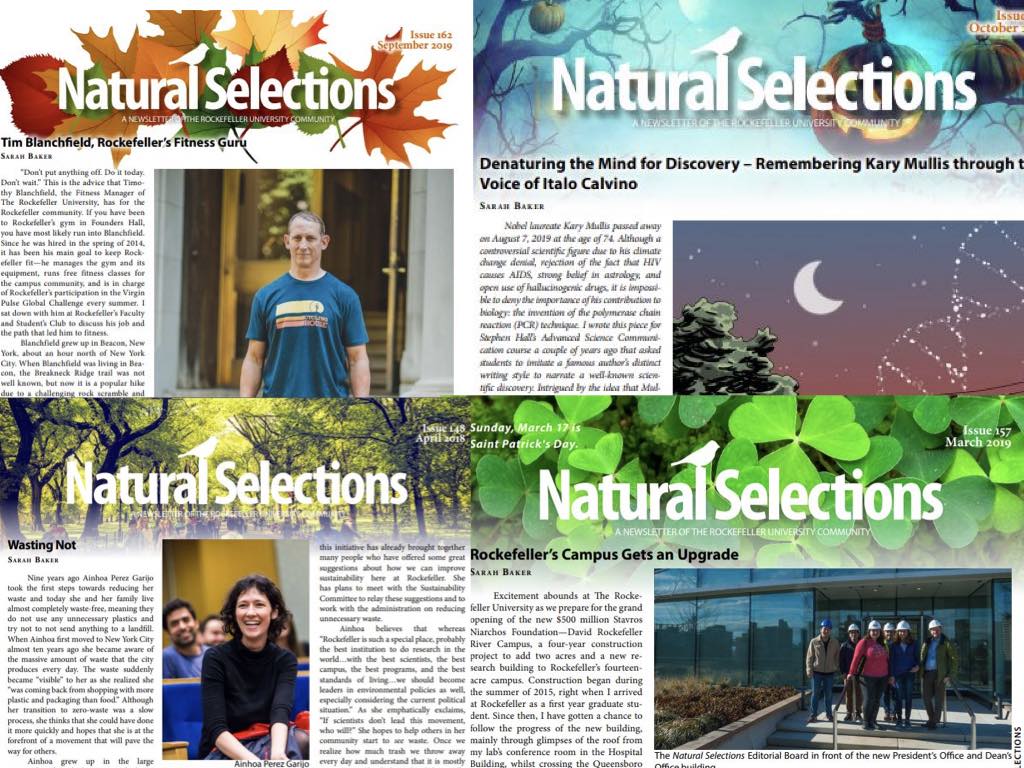Using Natural Selections to Communicate, Collaborate, and Grow

Growing up, I had no set idea of what I wanted to be when I got older.
In second grade, I began spending a couple of hours each day reading books and at that point I decided that I would be a writer. I wrote short stories and poems that I would gift to my friends, family, and teachers. Although my love of reading persisted, my dreams of being a writer faded as I grew older. I loved all of the subjects we were taught in school, especially literature and math. In fact, although I grew up enjoying my science classes because I had great teachers, I didn’t really fall for science until quite late in high school when I had a teacher that pushed me to go beyond memorization and into a real depth of understanding of the science. It was hard work, but I loved it.
So when I was deciding where to go to college, I opted for a school with a liberal arts education. I reveled in the idea of having a broad core of courses that I had to fulfill so that I could get exposure to a variety of fields. But despite this, or maybe because of it, I could not choose just one subject to focus my energies on—this explains why I ended up with two majors and a minor. Although spread pretty thin because of this decision, I could not help but to be most attracted to science and the process of research. After pursuing a couple of different undergraduate research experiences, I was pretty certain that I wanted to pursue a Ph.D. in neuroscience. So during my senior year, I applied to graduate programs across the United States.
One of the things that most drew me to Rockefeller was the independence that students have throughout the course of their graduate careers that allows them to focus on their research without worrying about any other commitments. However, this narrowed my focus pretty quickly. I dove deep into the science with little time to focus on anything else. My prior research background was primarily in chemistry and I had to work hard on my own to learn some neuroscience and catch up with my peers. In each lab that I rotated in, I spent a significant portion of my time learning as much as I could about a new field and attempting techniques that I had no prior exposure to.
This concentration on science was great for a while but started to wear on me a bit.
I missed having other commitments that challenged me in ways different from the ways science did. In college, I ran several clubs and was involved in many extracurricular activities that allowed me to engage with people from all kinds of disciplines each day.
At the end of my second year of graduate school, I took the Science Communication Workshop taught by science writer, Steven Hall. This short course reminded me how much I liked writing and kindled my desire to engage in science communication. I began looking for ways to get involved in groups where I could hone in on my science communication skills and joined:
1) Rockefeller’s Science Communication and Media Group, focused on bringing interested speakers and events to campus;
2) Know Science, a New York City-based organization focused on scientist engagement with the public; and
3) Natural Selections, a newsletter on campus run by the Tri-Institutional community. I jumped eagerly into all three, taking on leadership roles. My restlessness subsided and I gained an excitement about the new balance I had gained between my lab work and other endeavors.
I initially joined Natural Selections because I wanted to be able to write. I knew that I would never write anything on my own without a place for it to go, so being able to write for a newsletter seemed optimal because it would give me both deadlines and feedback from the editors to improve my writing.

The notion of “a scientist as a writer” is not far-fetched. We have to write grant proposals and papers to be successful. This writing has to be effective at communicating ideas in a concise way, but with enough detail to be understandable. But communicating ideas to non-specialists can be challenging due to the complex nature of scientific research. Natural Selections is a place where a contributor can write about anything and has thus been a great place to develop my non-technical writing skills. I am a better all-around communicator because of it.
In addition, Natural Selections has helped me to become a more engaged member of my community by allowing me to connect with people across campus in ways separate from our science. I first joined the Natural Selections editorial board as a copy editor, then worked as an associate editor for a short period of time, and ultimately took over as managing editor and editor-in-chief at the end of 2018. Each month, as part of the editorial board, I brainstorm timely topics, work with our contributors to sculpt their writing into polished pieces, and oversee the production of each issue. Through Natural Selections, I have built a connection and collaboration with the Rockefeller library, explored the secrets of the campus from the eyes of Plant Operations, worked with Human Resources to promote mental health resources that our community has access to, and highlighted many people on campus including graduating seniors, leaders in sustainability efforts, and the head of the Rockefeller fitness center.

These are some of the articles that Sarah has contributed to Natural Selections.
Rockefeller is a place full of talent. As a top biomedical research institution, it is mostly recognized for its scientific achievements. However, through Natural Selections, I have come face-to-face with all of the other ways Rockefeller is talented, too. Our brilliant scientists and other employees are artists and activists and musicians and athletes and adventurers and writers and they are full of passion and inspiration. I feel privileged to be able to highlight these other abilities through the lens of Natural Selections. And, in turn, I have gotten to develop my own skillset. I love science, but do not want to stay in academia. I have gained the confidence to believe that I will be successful in a communications career when I graduate in the upcoming year.
I would encourage anyone starting at Rockefeller to find a way to engage in the community outside of the lab as early in their career as possible. Writing and editing for Natural Selections has brought a newfound sense of equilibrium to my life, connected me to my community, and improved my communications skills. I am a better scientist and citizen because of it.
Natural Selections is a monthly publication produced for The Rockefeller University and Tri-I community. Their content covers a broad range of topics including science, arts/entertainment, sports, travel, food, etc. They are always seeking new contributors, editors, designers, etc., and encourage anyone who is interested to be involved in whatever ways they are most comfortable. If you are interested in getting involved, please contact sbaker@rockefeller.edu. In addition, you can check out their current editorial team and access the publication on their website.
